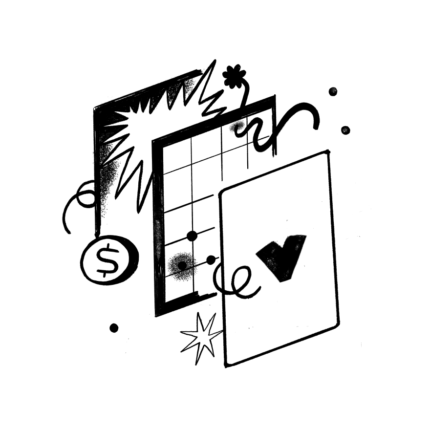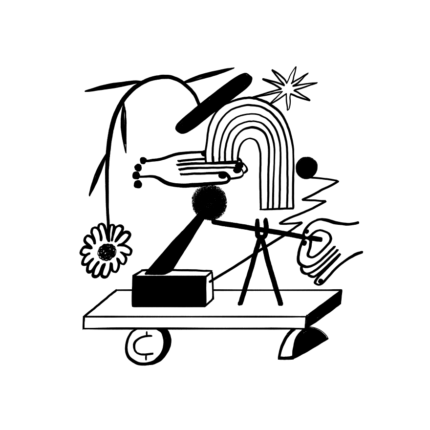
A wealth psychology expert on breaking the money talk taboo
Ex-FDIC bank examiner turned wealth psychology expert Kathleen Burns Kingsbury on what it means to talk about money, and why, for so long, we’ve let the topic be taboo.
Growing up, I remember being told what seemed like two innocuous pieces of social code:
- Never ask a woman’s age.
- Never ask about someone’s finances.
While I (mostly) still abide by the former, the latter is changing. I exercise care when discussing personal finances with others, sure. But I know many of my friends’ rent costs in New York (which helped me when looking for my own apartment). Some of us even know each other’s salaries.
And while this type of transparency isn’t necessarily standard, it’s becoming increasingly more common.
“It’s great to see millennials working hard against the money taboo,” wealth psychology expert Kathleen Burns Kingsbury told me earlier this month. “They’ve decided that society would be healthier if we talked more openly and honestly about money. And they’re right.”
An FDIC bank examiner turned therapist, turned wealth psychology expert, podcaster, speaker, and author, Kathleen’s had work featured in The New York Times, The Wall Street Journal, Money Magazine, Forbes, and others. And, as I was lucky enough to find out earlier this month, she’s also a complete delight to talk to.


“There’s still an underlying current of money talk taboo that surrounds our day-to-day,” she tells me. “It’s been passed down for generations and strengthened by fear of appearing uneducated or feeling embarrassed.”
“Did you know that 44% of Americans would rather talk about death, dying, politics, or religion than about personal finance?” Kathleen asks.
“What that tells me is that we’re still missing something major at our societal core. We don’t have a roadmap for how to talk about money.”
With the knowing chuckle of a former therapist, Kathleen goes on, “as humans, we have a lot of feelings. And our feelings associated with money—the dollars and cents, the nitty-gritty of personal finance—can all be traced back.”
“Think of your childhood. Did you talk about retirement plans at the dinner table? Did your parents, and maybe even you, save every penny? Did your family spend money when it was available, or even when it wasn’t?”
Kathleen explains that taking time to deeply consider how our past has and continues to affect our bank accounts and how we feel about money is crucial to discovering where we can offer ourselves an opportunity for growth.
Everything I do is to open up the discussion around finances in order to help us to live ‘wealthier’, sure, but most importantly, more fulfilled, comfortable lives.
From crisis comes opportunity
Much of how Kathleen thinks about her job and how she can help people stems from how she got into this line of work.
“In 2006, my husband and I planned to put on an addition to our home. We hired a contractor who essentially ran away with a huge chunk of our savings.”
After the initial shock of being so well-conned wore off, Kathleen says that she was “struck with the realization that even an ex-bank examiner—someone who is so financially educated—was still able to get completely ripped off.”
“The experience made me realize that my husband and I weren’t talking about money as much as we should have been. We’d let those learned money fears dig in. And suddenly we were thrust into this crisis. Half of our house was torn down and ready for a contractor that didn’t exist anymore!”
As much as the financial repercussions of the experience burned, “it was the anxiety associated with it,” Kathleen says, “that made me decide I wanted to change my financial point of view.”

“I hired a money coach and started digging into my own relationship with money. Making small changes. Taking those talks into my own home and affecting change at the micro-level.”
Kathleen began her own business, KBK Wealth Connection, in the years that followed.
“It was sort of a freak occurrence, I suppose, the whole contractor thing” she laughs. “But from that crisis came opportunity. I wanted to help people protect and prepare themselves in any way I could.”
Adventure Funds
Kathleen’s passion for breaking money silence, also the title of her podcast, runs deep.
“Everything I do is to open up the discussion around finances in order to help us to live ‘wealthier’, sure, but most importantly, more fulfilled, comfortable lives. But breaking the money taboo isn’t that simple,” she laments. “Those internalized money biases and what society decides is acceptable on any given day can really affect how we interact with money.”
Kathleen believes that the first step towards breaking our personal money biases is recognizing that we have them. The second? Giving them air time.
“The pandemic made us take a hard look at what matters most. For many, that’s broken down to how we spend our time, and how we spend our money. Finally, we’re beginning to talk about it.”
Kathleen goes on to say that for some, the pandemic has made worse a subject that encapsulates both of the above: retirement.
“There are studies on how people can’t visualize themselves at age 60 when they’re 20,” she tells me. “And yet, we’re asking people who just endured a terrifying and uncertain time to prepare for the equally, in some ways, uncertain long term.”
Kathleen challenges her clients to connect their present self to their future self. “To reframe retirement,” she says. “I ask them how they’d invest in themselves today if they knew they had a lot more time to do the things they love?”
“What is similar about you today that you think will be the same in 20 years? I, for one, love adventure. When I think about my life after my 9-to-5, it doesn’t look like stopping doing what I love. It just looks a little different.” I tell her that I feel the same way.
So instead of continuing to talk about retirement, we decide to discuss our ‘Adventure Funds’, agreeing that it has a much nicer ring to it.


